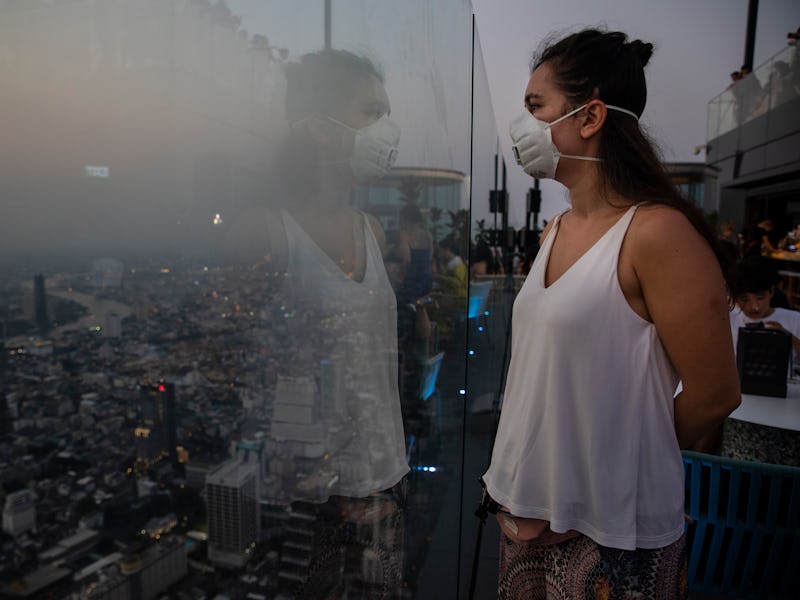Can Air Pollution Make You Depressed?
New findings suggest “more strict air quality standards should be adopted.”

Only 3 percent of the world’s cities meet World Health Organization air quality standards.
And yet research shows exposure to air pollution puts people at an increased risk of mental health outcomes like depression and anxiety. Still, questions remain about how hazardous it is to be exposed to air pollution for many years.
Now, two new studies may help shine a light. Together, they suggest there is a link between long-term exposure to multiple air pollutants and detrimental mental health effects.
One study was published in JAMA Psychiatry this month. The research team used data from the UK Biobank to analyze the health and wellness of 389,185 participants over the course of 10.9 years.
Their work establishes a connection between long-term exposure to low levels of air pollutants to subsequent depression and anxiety. It also examined the effects of fine particulate matter pollution (PM2.5), nitrogen dioxide, and nitric oxide, which is emitted from vehicles and various industrial sources. PM2.5 refers to fine inhalable particles with diameters that are 2.5 micrometers or smaller; these particles are emitted from various sources, including cars, power plants, and construction sites.
A plume of exhaust extends from a coal-fired power plant near Pittsburgh, Pennsylvania.
Guoxing Li is the study’s senior author and is a visiting professor at Imperial College and an associate professor at Peking University. He tells Inverse these findings suggest “more strict air quality standards should be adopted.”
The second study was also published this month in JAMA Network Open. In this investigation, the researchers focused on over 8 million people over the age of 64 who were also enrolled in Medicare.
The investigation ran from 2005 to 2016 and aimed to see whether or not there was a link between air pollution exposure and late-onset depression. In this study, the researchers find a connection between long-term exposure to fine particulate matter (PM2.5), nitrogen dioxide, and ozone and an increased risk of a depression diagnosis in older adults. The study suggests ozone is especially dangerous and warrants further examination.
“This finding with O3 [ozone], if validated to be true, informs us of the importance of long-term ambient O3 regulation because it is one of the key pollutants projected to increase for certain regions under future climate change scenarios,” writes the study authors.
Why can pollution cause depression?
A layer of smog above The Vegas Strip.
In the JAMA Psychiatry study, Li and his colleagues found that men are especially likely to experience anxiety after exposure to PM2.5. Other research jibes with this finding: A study on mice found diesel exhaust particles are more likely to induce neuroinflammation in male mice compared to female mice.
We can’t explain why males may be more affected by exposure to forms of air pollution without more research, but Li says animal studies suggest the sex hormone estrogen could — at least in part — explain the difference.
Overall, “further research is needed to clarify the mechanisms that underlie the association between air pollution and mental health,” explains Li. But it’s possible that air pollution might increase the risk for poor mental health through physiological pathways. For example, air pollutants may affect the central nervous system through inflammatory and oxidative stress pathways, he explains.
Still more studies have found that exposure to particulate matter can lead to acute and chronic inflammation in the brain and can damage the blood-brain barrier. Meanwhile, nitrogen dioxide can cause oxidative stress, a phenomenon implicated in the development of several mental health conditions.
Meanwhile, there are actions we can all take to reduce air pollution, which disproportionately afflicts marginalized communities. These include advocating for strong policies to curb climate change, public transportation expansion, and better air quality standards.
This article was originally published on